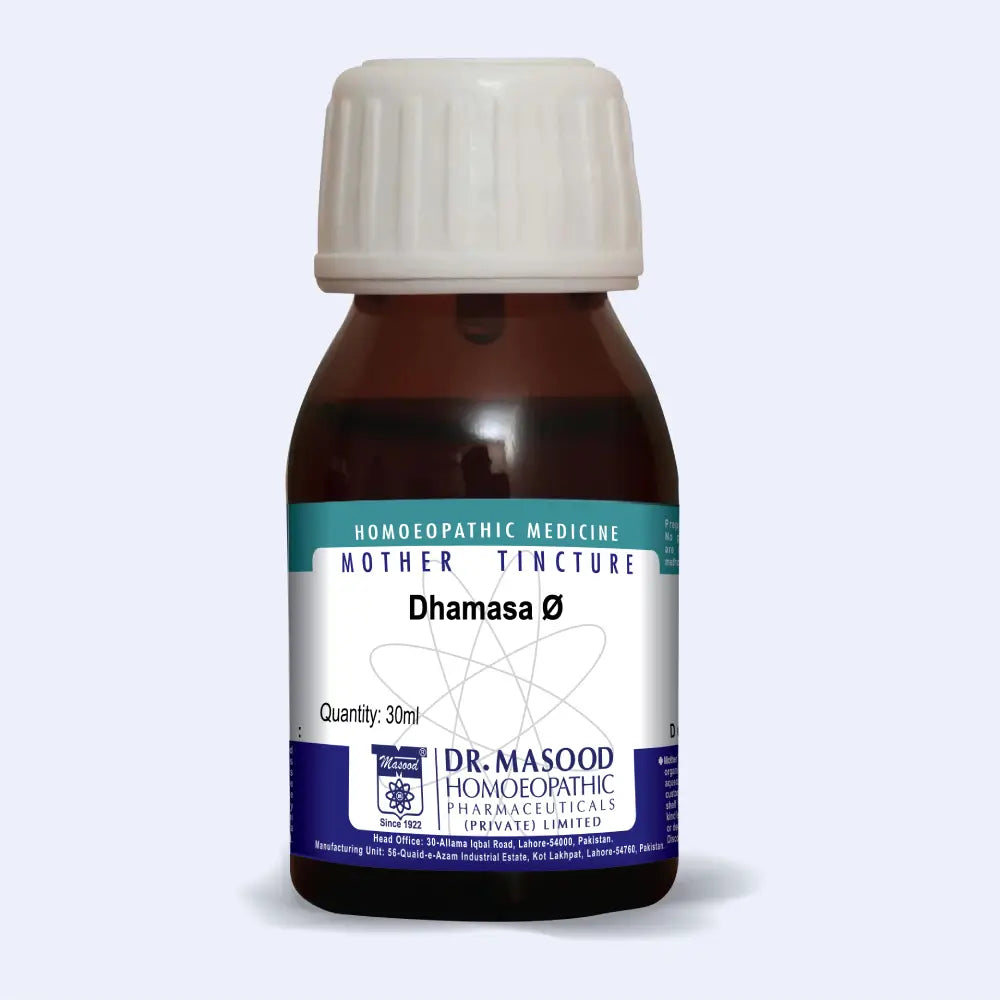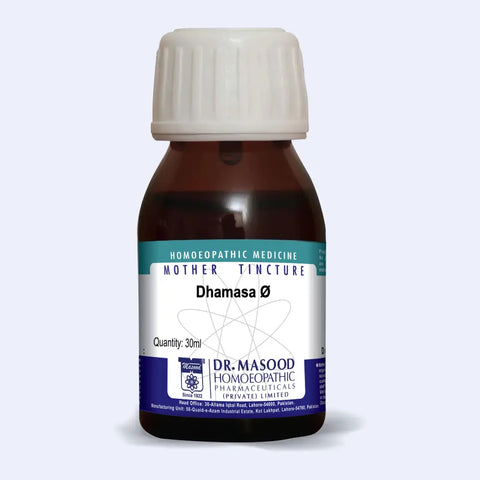56-M, Quaid-e-Azam Industrial Estate, Lahore, Pakistan


Dhamasa Q (Fagonia Cretica)
- Rs.210.00
-
- Rs.210.00
- Unit price
- per
Description
xDr. Masood’s Dhamasa Q (Fagonia Cretica) mother tincture is traditionally used to purify the blood, reduce inflammation and fever, support liver function, manage skin conditions like acne and eczema, boost the immune system, regulate blood pressure, ease respiratory issues such as asthma and bronchitis, and address gynecological problems like irregular menstruation and leucorrhea.
Fagonia cretica, commonly known as Dhamasa, is a traditional herb valued for its wide range of benefits. It is a powerful natural blood purifier, helping to cleanse the bloodstream of toxins and impurities, which makes it particularly beneficial for managing skin conditions such as acne, eczema, and boils. Due to its potent anti-inflammatory and antipyretic properties, Dhamasa has been used to reduce inflammation and fever.
The herb is also known for its immune-modulating capabilities, making it useful in cases of recurrent infections, general weakness, and for promoting overall immune resilience. Dhamasa is traditionally used in respiratory ailments to ease asthma, bronchitis, and persistent coughs.
In liver-related disease, Fagonia cretica plays a supportive role by aiding liver detoxification and improving hepatic function. Its cardiotonic properties help regulate blood pressure and support heart health, while its mild diuretic effect assists in removing excess fluids and maintaining internal balance.
For women’s health, Fagonia cretica is considered beneficial in managing irregular menstruation, excessive bleeding, uterine inflammation, and leucorrhea.
Common Name: Dhamasa, Dhamasa Booti
Botanical Name: Zygophyllaceae
Fagonia is a genus of plant in the family Zygophyllaceae with about 20 species around the Mediterranean to India, South Africa, California, Chili. The local name of Fagonia is Dhamasa. They are traditionally well known for the treatment of hemorrhoids, inflammation, sores, leprosy, open wounds, and fever in the form of internal and external conventional formulations. Its bath is useful for allergies and other skin diseases, and the decoction is given orally as a blood purifier. The other effects of Fagonia species include anti-inflammatory, analgesic, antipyretic, and thrombolytic activities are observed. Various bioactive compounds have been identified across different species of Fagonia, such as triterpenoids, saponins, and flavonoid glycosides, which significantly contribute to their therapeutic potential.
Dosage:
Use as prescribed by a homeopathic practitioner.
Caution:
An overdose of the mother tincture may harm pregnant and lactating mothers.
Note:
Always consult your Homeopathic Doctor before taking this medicine.
Related Products
- From Rs.210.00
-
- From Rs.210.00
- Unit price
- per
- From Rs.210.00
-
- From Rs.210.00
- Unit price
- per
- From Rs.210.00
-
- From Rs.210.00
- Unit price
- per
- From Rs.210.00
-
- From Rs.210.00
- Unit price
- per
- From Rs.210.00
-
- From Rs.210.00
- Unit price
- per
- From Rs.210.00
-
- From Rs.210.00
- Unit price
- per
- From Rs.210.00
-
- From Rs.210.00
- Unit price
- per
- From Rs.210.00
-
- From Rs.210.00
- Unit price
- per
- From Rs.210.00
-
- From Rs.210.00
- Unit price
- per
- From Rs.210.00
-
- From Rs.210.00
- Unit price
- per
- Choosing a selection results in a full page refresh.









